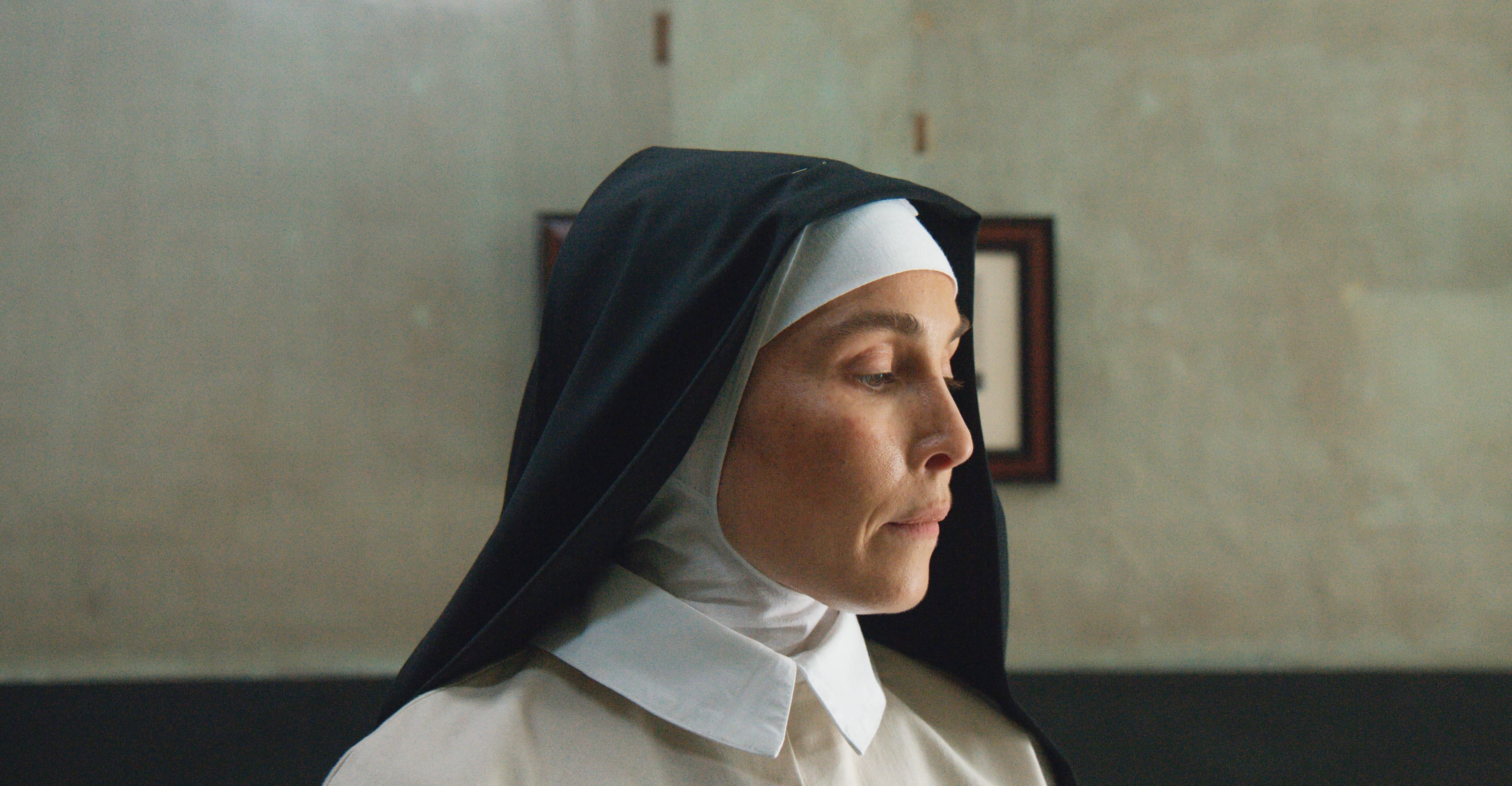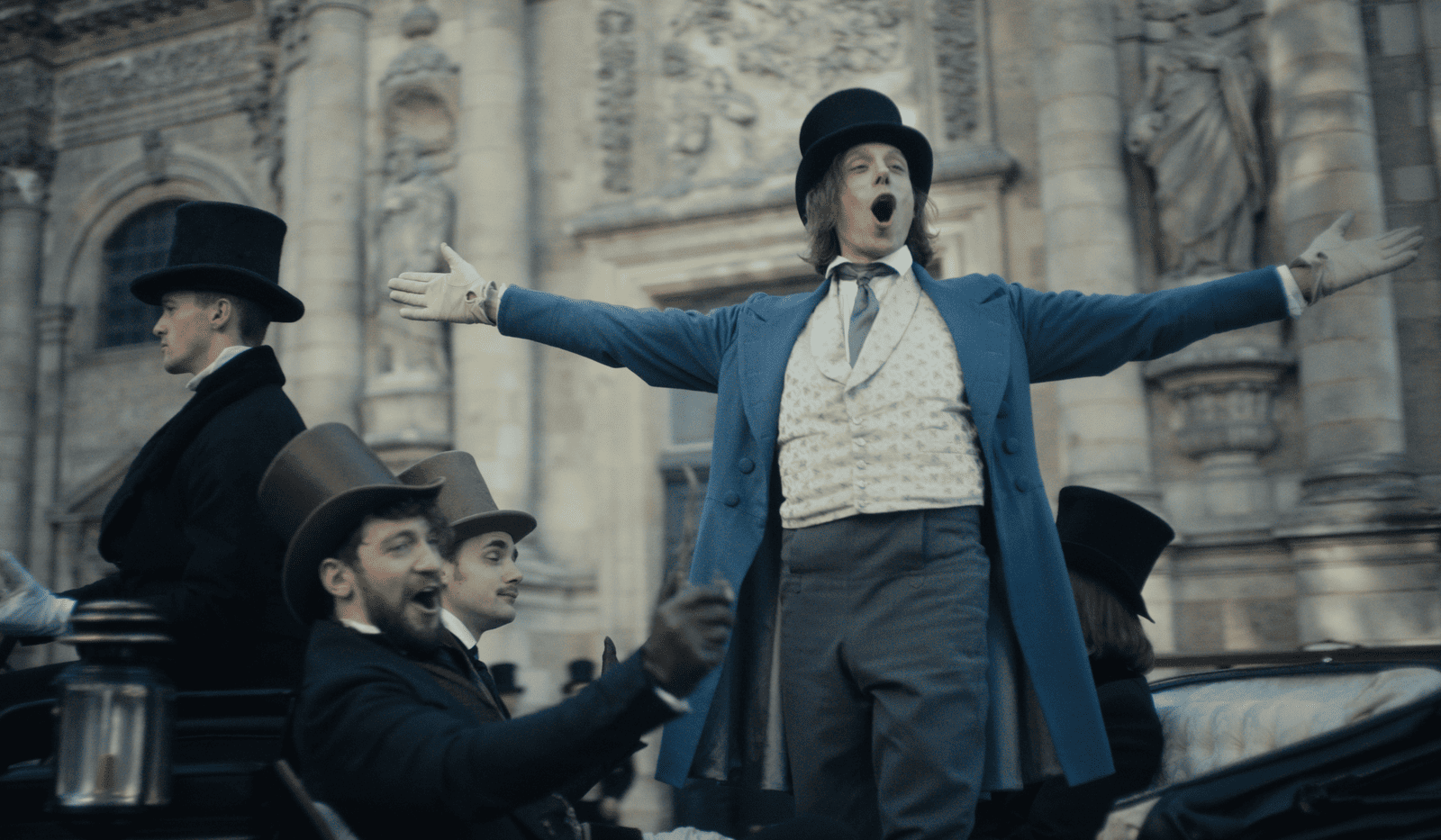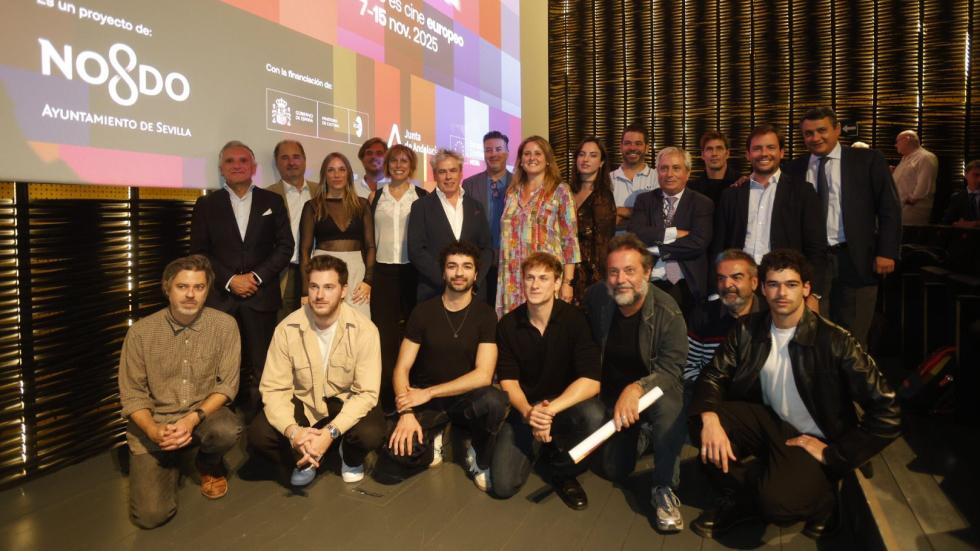The 22nd Seville European Film Festival reaffirms its commitment to discovery with an Official Selection defined by aesthetic diversity, political insight, and the humanism that runs through the best of European cinema. Among the 17 selected titles are stories of identity and memory, of women defying fate, of the dilemmas of power and truth, and of cinema’s own power to reinvent itself.
Several films revolve around the search for identity and belonging through powerful family bonds, beginning with the opening film, ‘The Last Viking`’, the much-anticipated new work by Danish filmmaker Anders Thomas Jensen, starring Mads Mikkelsen. Written by Jensen himself—winner of the Academy Award for Best Screenplay for ‘In a Better World’—it combines Nordic epic, humor, and emotion in a story about legacy and community.

Family ties and the quest for identity are also at the heart of ‘All That’s Left of You’, premiered at Sundance and written, directed, and performed by Palestinian-American filmmaker Cherien Dabis. This intergenerational epic traces the recent history of Palestine through three generations of the same family.
Other films in the Official Section focus on women who struggle to find their place in the world by challenging convention. Among them, ‘A Year of School’, the second feature by Laura Samani, co-written with Elisa Dondi. Following her acclaimed ‘Small Body’, Samani tells the story of a young Swedish woman who joins an all-male vocational class in Trieste.
Macedonian director Teona Strugar Mitevska presents ‘Mother’, which premiered in Venice and stars Noomi Rapace. Co-written with Goce Smilevski and Elma Tataragic, the film follows seven crucial days in the life of Mother Teresa of Calcutta, as she decides to leave her convent to found her own order.

Meanwhile, actor and director Hafsia Herzi writes and directs ‘La petite dernière’, adapted from Fátima Daas’ novel and awarded Best Actress at Cannes for Nadia Melliti. The film portrays a young practicing Muslim woman discovering her sexuality in the Parisian suburbs.
Also from Cannes, Mario Martone’s ‘La vida fuera’, co-written with Ippolita Di Majo, offers a free portrait of writer Goliarda Sapienza—moving beyond the classic biopic to explore friendship, freedom, and redemption, led by the brilliant performances of Valeria Golino and Matilda De Angelis.
Following its premiere at the Berlinale, ‘Late Shift’, written and directed by Petra Biondina Volpe, unfolds as a psychological thriller about the exhaustion and moral tension of a nurse, played by Leonie Benesch, who makes a fatal mistake during a night shift in the ER.
Turning to other themes, several titles examine power structures in contemporary society, such as the police drama ‘Dossier 137’, marking the return of Dominik Moll, co-written with Gilles Marchand, and starring Léa Drucker as an Internal Affairs officer caught in a moral and professional dilemma.
French director Quentin Dupieux signs ‘El accidente de piano’, a sharp satire of social media narcissism starring Adèle Exarchopoulos, Sandrine Kiberlain, and Karim Leklou.

Meanwhile, Daniel Vidal Toche’s ‘La anatomía de los caballos’, co-written with Ignacio Vuelta, reflects from the Andes on revolutionary ideals, the failure of change, and the persistence of the will to fight, following its premiere at Karlovy Vary.
Also bringing a Spanish accent, ‘Bajo el mismo sol’ by Ulises Porra, co-written with Ulla Prida, is a Spanish-Dominican co-production set in the colonial Caribbean—an ambitious story of passion and power that premiered at Toronto.
From the Balkans, Georgi M. Unkovski’s ‘DJ Ahmet’, awarded at Sundance 2025, is a vibrant coming-of-age film blending humor and social critique through the portrait of a young man torn between tradition and modernity.
Human connection and desire also shape other titles, such as the Golden Bear winner at Berlinale 2025, ‘Dreams (Sex Love)’, written and directed by Dag Johan Haugerud, which closes his trilogy on human relationships with a delicate reflection on intimacy, writing, and adolescent desire.
‘Enzo’, the posthumous work of Laurent Cantet completed by Robin Campillo and co-written with Gilles Marchand, arrives from Cannes as a social and emotional portrait of European youth, manual labor, and the search for identity.
Veteran filmmaker Cédric Klapisch blends drama and comedy in ‘Los colores del tiempo’, co-written with Santiago Amigorena, where a family uncover the secrets of a 19th-century ancestor while cataloguing an abandoned house.
The Belgian duo Charlotte Devillers and Arnaud Dufeys conclude this emotional journey with ‘We Believe You’, awarded Best First Feature at the Berlinale. Shot in a single location and almost in real time, it depicts the harrowing struggle of a mother fighting to protect her children in a judicial system that blames her.
Completing the section, animation is represented by ‘A Magnificent Life’, written and directed by four-time Academy Award nominee Sylvain Chomet. This visually stunning animated biopic chronicles the life of French playwright, novelist, and filmmaker Marcel Pagnol, and premiered at Cannes.
Out of competition, the Official Selection also features two notable Spanish productions. The documentary ‘Serás Farruquito’, co-directed by Santi Aguado and Reuben Atlas, and co-written with Christian Martínez, captures the essence of flamenco legacy through the relationship between Farruquito and his son, El Moreno —a portrait that fuses artistic power and cultural heritage.
Finally, ‘Islas’, written and directed by Marina Seresesky, is a tender story of fading dreams and second chances, starring Ana Belén in her first leading film role in two decades, alongside Manuel Vega, Eva Llorach, and Jorge Usón.

And closing the Official Section, out of competition, is ‘Chopin, Chopin!’, the Festival’s closing film, directed by Michał Kwieciński, written by Bartosz Janiszewski and starring Eryk Kulm — a biopic of the brilliant composer that recreates the atmosphere of Paris in 1835.

European Film Awards Nominations Return to Seville
In 2025, the city of Seville will once again host the European Film Awards Nominations Announcement, a milestone that enhances its international projection. The official ceremony will take place on November 18 at the Royal Alcázar of Seville.
“After several years without hosting this event, and thanks to the renewed historic alliance between the Festival and the European Film Academy, the city will once again host the nominations announcement every two years, maintaining a symbolic and prominent role in the events celebrated across other European cities,” explained Angie Moreno.
As in previous editions, the festival will accompany this event with the screening of several European titles in contention for these prestigious awards, including ‘Eagles of The Republic’ by Tarik Saleh; ‘Franz’ by Agnieszka Holland; ‘Little Amélie’ by Liane-Cho Han Jin Kuang and Mailys Vallade; ‘Little Trouble Girls’ by Urška Djukić; ‘Nouvelle Vague’ by Richard Linklater; ‘Orphan’ by László Nemes; ‘Sanatorium’ by Gar O’Rourke; ‘Sirāt’ by Oliver Laxe; ‘Sound Of Falling’ by Mascha Schilinski; ‘The Love That Remains’ by Hlynur Pálmason; ‘Un Poeta’ by Simón Mesa Soto; and ‘Sentimental value’ by Joachim Trier.







